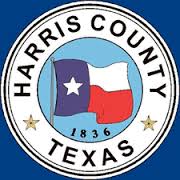One step forward, one step back.
As fear and COVID-19 crept though the Harris County Jail, felony judges halted the release of low-risk inmates on Friday, blocking the county chief executive’s order to free them to await trial.
Sheriff Ed Gonzalez discontinued the releases Friday after District Judge Herb Ritchie voided the order to free inmates to mitigate the spread of COVID-19. People had begun to be released from the jail Thursday night and Friday morning under Judge Lina Hidalgo’s decision from earlier in the week, but only a handful walked free before Ritchie put the hammer down.
Public health experts have warned that the cramped conditions at the jail mean any significant outbreak could spread “like wildfire” among the jail population, spreading to staff and the wider community. Five people who work at the jail and three inmates have tested positive for the coronavirus, with 800 more inmates quarantined. The sheriff has been calling for releases for weeks to avert a contagion that could ravage the jail and overload the region’s health care system.
[…]
Hidalgo earlier this week ordered Gonzalez to prepare a list of inmates accused of certain nonviolent offenses and who did not have previous convictions for violent crimes. That list was being reviewed and pared down by other county departments.
On Friday afternoon Ritchie, who supervises the felony judges, issued an “Order to Disregard Directive by Harris County Judge.” He ordered the sheriff to “ignore and wholly disregard” Hidalgo’s directive to arrange for the release of inmates. Ritchie’s order said that each violation “may result in criminal contempt of court penalties, which may include up to six months’ confinement in jail, as well as a possible fine not to exceed $500.00.”
Hidalgo said, “We are reviewing the order and hoping for a swift resolution because the health of every Harris County resident is at stake.”
Michael Fleming, former Harris County Attorney, said Ritchie has a very strong argument on constitutional grounds. “It’s not a frivolous thing that he did,” Fleming said. “A district judge under the Texas Constitution has supervisory control.”
It’s a thorny legal issue, according to Brandon Rottinghaus, a political science professor at University of Houston. “The judiciary almost always has precedence in matters involving release from incarceration,” he said, but noted: “In times of crisis, discretionary powers to protect public safety have a way of finding priority, so a higher court may agree that the county judge has jurisdiction in an emergency.”
The effort to secure inmate releases has crawled along for weeks, impeded by squabbling among the county departments involved, disagreements about who should qualify for release, threats from the state Attorney General and social media potshots from Houston Police Chief Art Acevedo and others warning of dire consequences should people be freed from jail. For all the effort that went into Hidalgo’s order, it appeared Friday that only a handful would end up being released under its terms.
The sheriff sought to prioritize 125 people whose health would be especially compromised if they were exposed to the virus. The district attorney objected to all but 14 of those people, who had all been released as of late Friday morning. According to an estimate by the sheriff’s lawyer, only 150 to 200 on the list of 1,470 people would have gone free.
The Hidalgo order excluded anyone with three or more drunk-driving convictions, a conviction for burglary of a habitation or temporary restraining orders. The inmates released on Thursday night and Friday include people charged with drug possession, unauthorized use of a vehicle, evading arrest, interfering with the duties of a public servant, theft, fraud, and tampering with a government record. But the vast majority on the sheriff’s list were being stricken.
See here and here for the background. Boy, you really have to watch out for those document-tamperers. They will straight-up kill you if you look at them funny. Kidding aside, I sure don’t know if Judge Ritchie is correct that county judges don’t have the authority to order the release of inmates who have been held on bond. There’s likely little to no precedent, and there are good arguments to be made either way. (Former CCA Justice Elsa Alcala has some interesting discussion of this on her Twitter feed.) Individual judges can certainly change bond conditions as they see fit, and eventually we will get this sorted out either through the courts or subsequent legislation. The point, though, is that this is an emergency situation, and every day increases the risk and the infection rate, which is exactly what Judge Hidalgo was trying to mitigate. This is just another way in which we as a society were totally unprepared for this kind of problem. We damn well better learn from it for the next time.


In an appearance on ABC’s This Week program, a Massachusetts prison official offered counterarguments regarding the release of prisoners, noting that many lack a stable or uncrowded residence in the community, have drug use issues and on release are likely to use up scarce public health and EMS resources for overdoses, and are likely to be vectors for greater transmission of the virus.